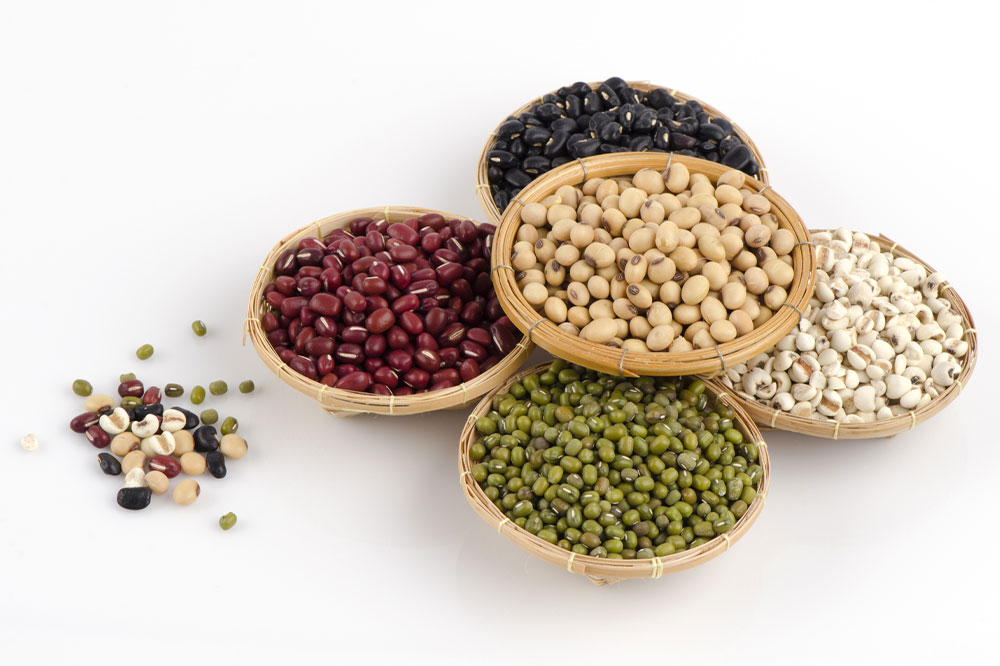Essential Nutritional Approaches to Enhance Bone Strength and Prevent Osteoporosis
Discover comprehensive nutritional strategies to strengthen bones and prevent osteoporosis. This detailed guide covers key minerals, vitamins, plant-based options, and treatment insights to support lifelong skeletal health through diet and lifestyle. Perfect for aging adults and health-conscious individuals aiming to maintain bone density and reduce fracture risk.

Essential Nutritional Approaches to Enhance Bone Strength and Prevent Osteoporosis
As individuals age, maintaining healthy bones becomes increasingly important to prevent conditions such as osteoporosis and fractures. Bone health naturally declines over time due to factors like hormonal changes, lifestyle decisions, and nutritional deficiencies. However, proactive dietary strategies can significantly reduce this decline, promoting stronger bones and a better quality of life in later years. Implementing a balanced, nutrient-rich diet tailored toward supporting skeletal health is essential. The critical nutrients that support bone strength include calcium, vitamin D, magnesium, phosphorus, vitamin K, and vitamin C. Each plays a unique role in bone development, maintenance, and repair. This comprehensive approach to nutrition can help individuals at various ages maintain optimal bone density and minimize the risk of age-related bone diseases.
Understanding the Role of Calcium in Bone Health
Calcium is the cornerstone mineral for bone structure. Approximately 99% of the body's calcium is stored in bones and teeth, providing their hardness and strength. It supports processes such as bone mineralization, which is crucial during growth and for ongoing maintenance. As we age, the body's ability to preserve calcium in the bones diminishes, making it vital to consume adequate calcium daily. The average recommended intake for adults varies from 1000 mg to 1200 mg per day, depending on age and sex.
Incorporating calcium-rich foods into your diet is one of the most straightforward and effective strategies. Dairy products are primary sources, including milk, cheese, and yogurt. For those who are lactose intolerant or prefer plant-based options, fortified plant-based milk alternatives—such as almond, soy, or rice milk—serve as excellent substitutes. Green leafy vegetables like kale, collard greens, mustard greens, turnip greens, and bok choy are also rich in calcium and provide additional fiber and phytonutrients. Additionally, foods such as fortified orange juice, canned fish like sardines and salmon (which contain edible bones), tofu, and edamame significantly contribute to daily calcium intake. Regularly consuming these foods helps maintain calcium levels necessary for robust bones.
Vitamin D: The Key to Calcium Absorption
While calcium intake is crucial, the effectiveness of calcium depends heavily on adequate vitamin D levels. Vitamin D enhances calcium absorption in the intestines, ensuring that the body effectively utilizes dietary calcium for bone formation. Deficiency in vitamin D leads to weakened bones, increased fracture risk, deformities like rickets in children, and osteomalacia in adults. Natural sunlight remains the most efficient source of vitamin D, as ultraviolet rays trigger its synthesis in the skin. However, dietary sources are vital, especially in regions with limited sunlight exposure.
Foods high in vitamin D include egg yolks, oily fish such as salmon, mackerel, sardines, and cod liver oil. Fortified foods like cereals, bread, and fruit juices also help maintain adequate vitamin D levels. Ensuring sufficient vitamin D not only promotes optimal calcium absorption but also contributes to overall skeletal health, reducing the likelihood of bone demineralization with age.
Minerals That Support Long-Term Bone Integrity
Beyond calcium and vitamin D, other minerals such as phosphorus and magnesium play an essential role in maintaining bone strength and structure. Phosphorus accounts for about 1% of body weight and works closely with calcium to form hydroxyapatite, the mineral complex that provides bones with their hardness. Dairy products stand out as primary sources of phosphorus, alongside beans, lentils, seafood, and shellfish.
Magnesium, on the other hand, influences bone mineralization and helps regulate calcium channels within bones. Magnesium deficiency has been linked to osteoporosis and increased fracture risk. Rich sources of magnesium include green leafy vegetables like spinach, bananas, chickpeas, avocados, and nuts such as almonds and cashews. Incorporating these magnesium-rich foods into your diet promotes better calcium utilization and supports overarching bone health.
Vitamins K and C: Essential for Bone Mineralization and Collagen Formation
Vitamin K is often overlooked but plays a pivotal role in directing calcium to the bones and preventing its accumulation in arteries, which can cause calcification. It activates osteocalcin, a protein necessary for bone mineralization. Rich sources of vitamin K include leafy green vegetables like kale, broccoli, asparagus, and pumpkin. Including these foods helps optimize calcium utilization and strengthen bone matrix.
Vitamin C, on the other hand, is critical for collagen synthesis, a structural protein forming the scaffold of bones. Adequate collagen is essential to provide flexibility and tensile strength to bones. Vitamin C-rich foods include kiwi, peppers, strawberries, citrus fruits, and beetroot. A diet abundant in these nutrients fosters healthy bone mineralization, enhances collagen production, and supports overall skeletal structure.
Plant-Based Nutrients for Bone Support
For vegans and those reducing animal products, maintaining strong bones is still entirely achievable through plant-based foods. Fortified plant-based milks—such as soy, rice, or oat milk—provide good sources of calcium and vitamin D. Legumes like lentils and chickpeas, dried fruits such as prunes, figs, apricots, and raisins, as well as seeds like sesame and tahini, contribute vital minerals and nutrients necessary for bone health. Additionally, incorporating a variety of vegetables, nuts, and whole grains into daily meals ensures a balanced intake of bone-supporting nutrients. These plant-based options not only promote skeletal health but also offer other health benefits, including reducing inflammation and supporting cardiovascular health.
Strategic Interventions for Osteoporosis Prevention and Management
While diet forms the foundation for strong bones, individuals with osteoporosis or a high fracture risk should consult healthcare providers about additional treatments. Medications such as Romosozumab, a monoclonal antibody, can stimulate bone formation and reduce fracture risk, especially when combined with nutrient-rich diets. Regular weight-bearing and resistance exercises are also crucial components of a comprehensive bone health strategy.
In summary, adopting a nutrient-dense diet emphasizing calcium, vitamin D, magnesium, phosphorus, vitamin K, and vitamin C, along with a healthy lifestyle, can significantly strengthen bones, prevent osteoporosis, and support lifelong skeletal health. Proactive nutritional choices taken early can help mitigate age-related bone loss and promote a more active, independent life in aging years.





